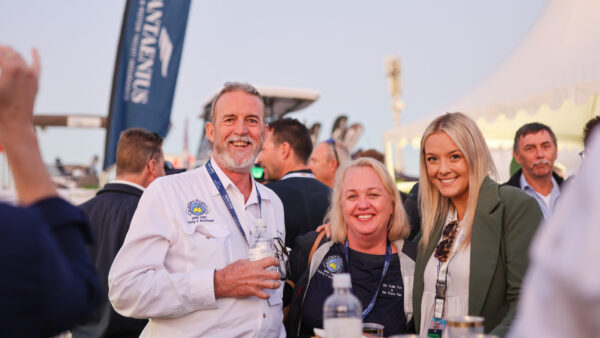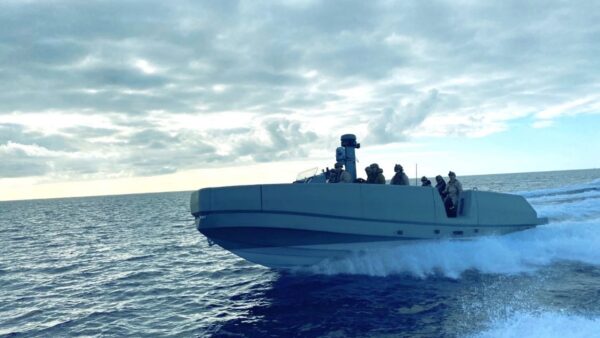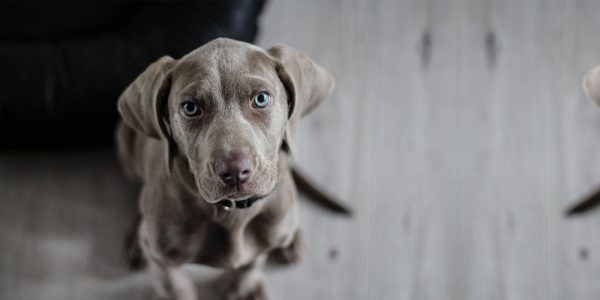Steber International is leading from the front when it comes to employing local apprentices, by taking part in a pilot distance learning program.
And Beau Paff from Taree is a prime example of how the program is working at a local level.
Beau is an apprentice shipwright at Steber’s Elizabeth Street factory. He receives practical on-the job training and tuition Mondays to Thursdays and each Friday undertakes on-line training via North Sydney TAFE.
Recently Steber started the pilot apprenticeship program in conjunction with the BIA and TAFE which involves a combination of in-house and on-line training for budding shipwrights.
There is the opportunity also to cross train with other manufacturers, thus creating an even more diversified pool of skilled tradesmen.
General Manager, Alan Steber said the company leads the way in NSW in the manufacture of fibreglass boats from 20 to 65ft, including government and defence contracts.
‘Our refit and repair business has grown at 100% per year for the past five years and demand shows no signs of abating’, Mr Steber said.
‘Unlike other manufacturing plants, we have refit vessels right alongside new production vessels, which all require custom fitouts.
‘We are unique in that we have joinery, upholstery, stainless and aluminium shops plus cabinetry and spray booths, all in the one large complex’, he said.
Several years ago Steber international won six consecutive Shipwright of the Year Awards at Newcastle Vocational College and also has taken out the Vocational Trainer of the Year Award.
In 2011, a Steber employee Jim Bolton was named AIMEX Marine Industry Young Achiever and has gone on to play a key role in Steber’s export service and support group. This involves servicing vessels overseas, as well as at the Taree factory complex.
‘The boat manufacturing industry will continue to grow and prosper but only if it maintains a laserlike focus and commitment to the ongoing training and upskilling of its workforce’, Mr Steber said.
‘The Australian Government needs to continue its support of this industry which has a billion dollar turnover per annum’, he said.
Apprenticeship and industry training was ad-hoc in nature during the pre-war days of timber boats.
Post-war, the advent of fibreglass construction saw the leisure boat industry kick off in a big way.
This was followed in the early 70s with the introduction of aluminium boat building which produced another surge in the industry.
Inevitably this led to a demand for skilled staff in these new boat building techniques and the need for apprentice training programs became a real focus.
The existing workforce needed to be trained to manufacture in fibreglass and aluminium, and not just for recreation vessels, but also a growing commercial market.
Fishing boats were predominately timber but in the quest for faster craft to go further to sea in search of new fishing grounds, fibreglass vessels came into their own.
Fibreglass fishing boats up to 100ft (30 metres) gained in popularity and we also began to make early sightings of aluminium fishing craft.
Over a period of time, and supported by specialist training including welders, Australia became a world leader in the construction of large multi-hull passenger/vehicle ferries.
Contracts for tourist, government and defence vessels quickly followed as the new construction methods quickly took hold.
From the mid 1970s to the present day, Australian companies introduced comprehensive apprenticeship training courses which not only covered shipwrights but marine engineering, cabinetry, upholstery, spray paining skills, etc.
The invention of travel lifts to remove boats from the water for repairs and refits and ultimately hard stand storage again added a new dimension to a rapidly diversifying manufacturing industry.
Most slipways and boatyards now have travel lifts, not just in our capital cities, but many other smaller ports.
This has led to the need for skilled staff to carry our repairs and refits on all types of vessels and now even smaller operations provide industry training to international standards.
Steber International to-date have produced over 150 shipwright apprentices.
Steber are located on the east coast of Australia and specialise in fibreglass repairs and refits as well as the manufacture of a range of commercial and recreational vessels.



